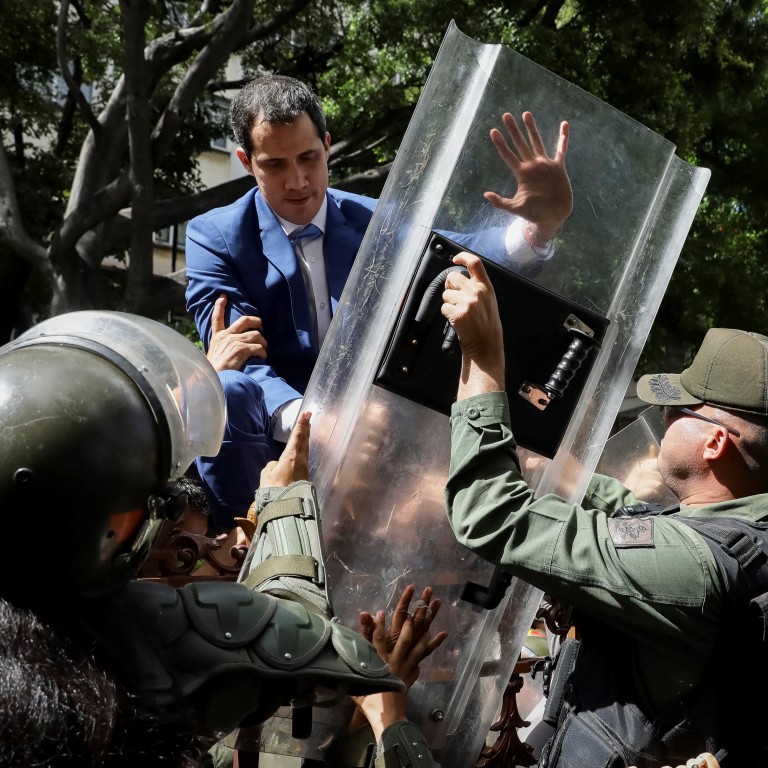
Has Maduro ousted rival Guaido? Chaos and confusion amid ‘parliamentary coup’ in Venezuela
- Venezuela’s socialist government installed a new head of congress after armed troops blocked opposition legislators from entering parliament
- Gambit was slammed by the United States, the European Union and a dozen Latin American nations
Opposition leader Juan Guaido and a rival lawmaker, Luis Parra, both claimed to be Venezuela’s parliament speaker after two separate votes and accusations of a “parliamentary coup”.
Guaido on Sunday was re-elected speaker by opposition lawmakers in a session held at a newspaper office after police blocked him from entering the National Assembly legislature.
In his absence, corruption-tainted Parra proclaimed himself speaker after claiming to have been elected with 81 votes in the 167-member chamber.
Guaido, who a year ago declared himself acting president in a direct challenge to the authority of socialist leader Nicolas Maduro, received the votes of around 100 lawmakers, including several forced last year into exile or to take shelter in foreign diplomatic missions due to a regime crackdown.
The 36-year-old Guaido vowed to “enforce” the constitution in his dual role as parliament speaker and “acting president”.
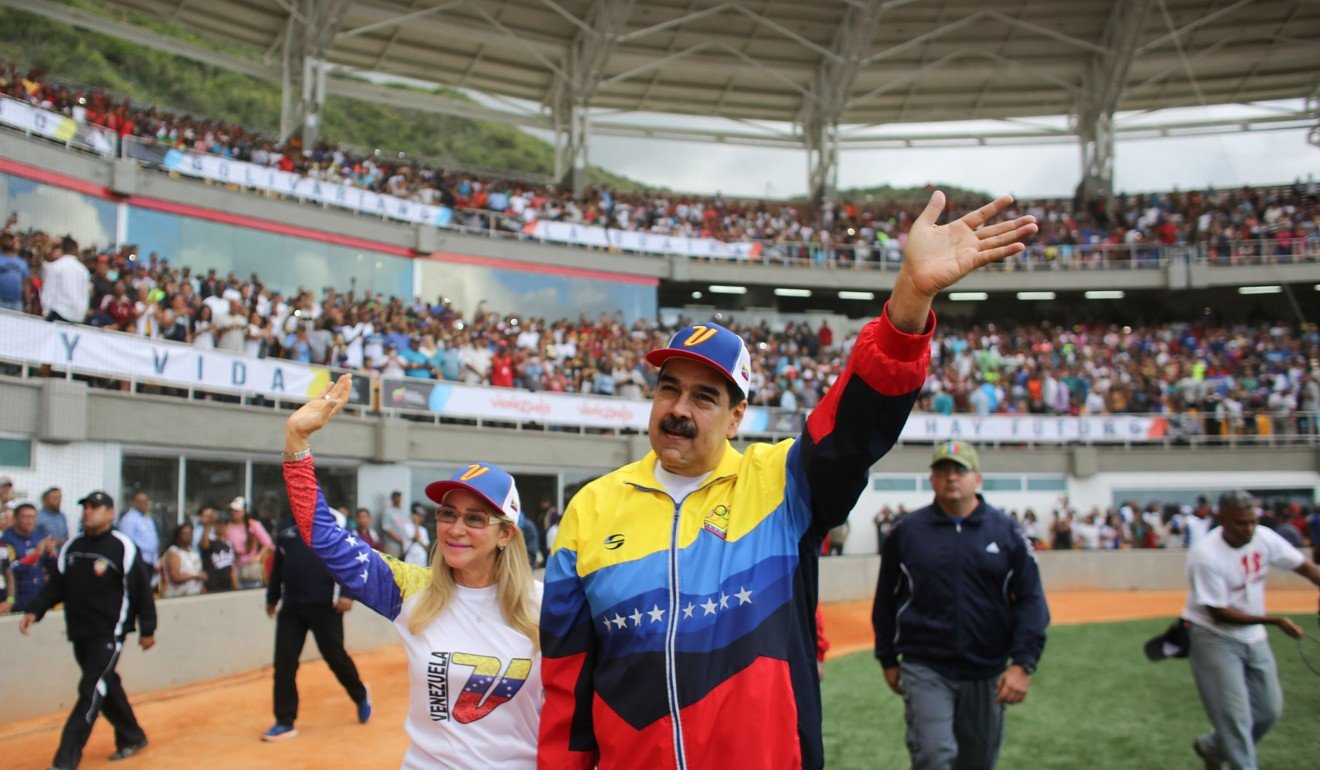
But in a televised address, President Maduro gave his backing to Parra as the new speaker, adding that “Guaido was kicked out of the National Assembly by the votes of his own opposition”.
Venezuela’s opposition earlier denounced Parra’s move as a “parliamentary coup”.
“Without votes, nor a quorum PSUV (socialist party) deputies are trying to swear in a false leadership,” said the National Assembly, the only government branch in opposition hands, on its Twitter account.
Guaido and around a dozen lawmakers had been prevented from entering the assembly by police claiming to be carrying out a security operation, but deputies from Maduro’s party and opposition ones that have rejected Guaido were allowed in.
Guaido, wearing a blue suit, attempted to climb over the railing around the National Assembly premises to gain entry to its compound, only to be pushed back by police with riot shields.
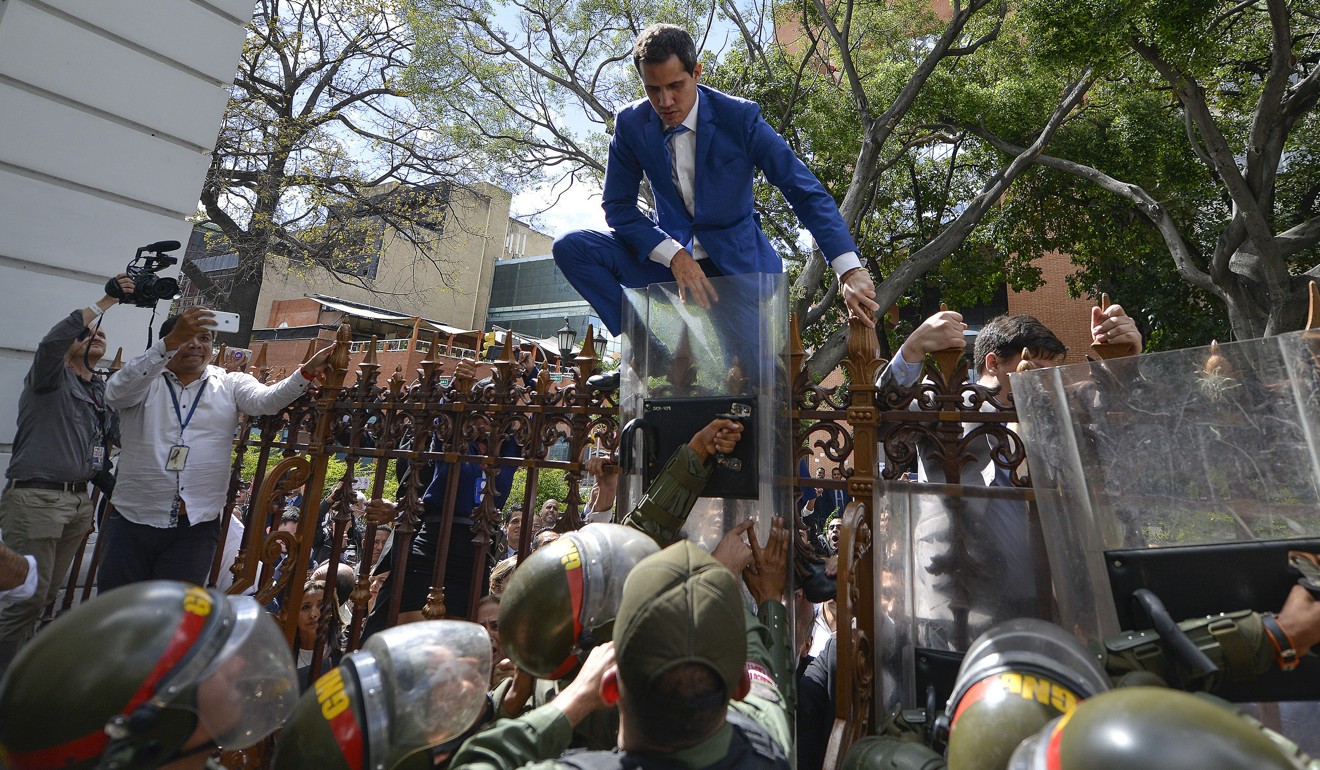
Images of Parra declaring himself head of the chamber by megaphone were shown on state television channel VTV.
After spending four hours outside parliament, Guaido and allied lawmakers went to the offices of El Nacional newspaper where they held their own session.
Photos show Venezuelan fighter jet that ‘aggressively shadowed’ US spy plane
“This is unprecedented!” Guaido told a member of the security forces with whom he had a heated exchange. “What operation? Who ordered it?”
“Those who help to prevent the legitimate installation of the Venezuelan parliament are converting themselves into accomplices of the dictatorship,” Guaido wrote on Twitter.
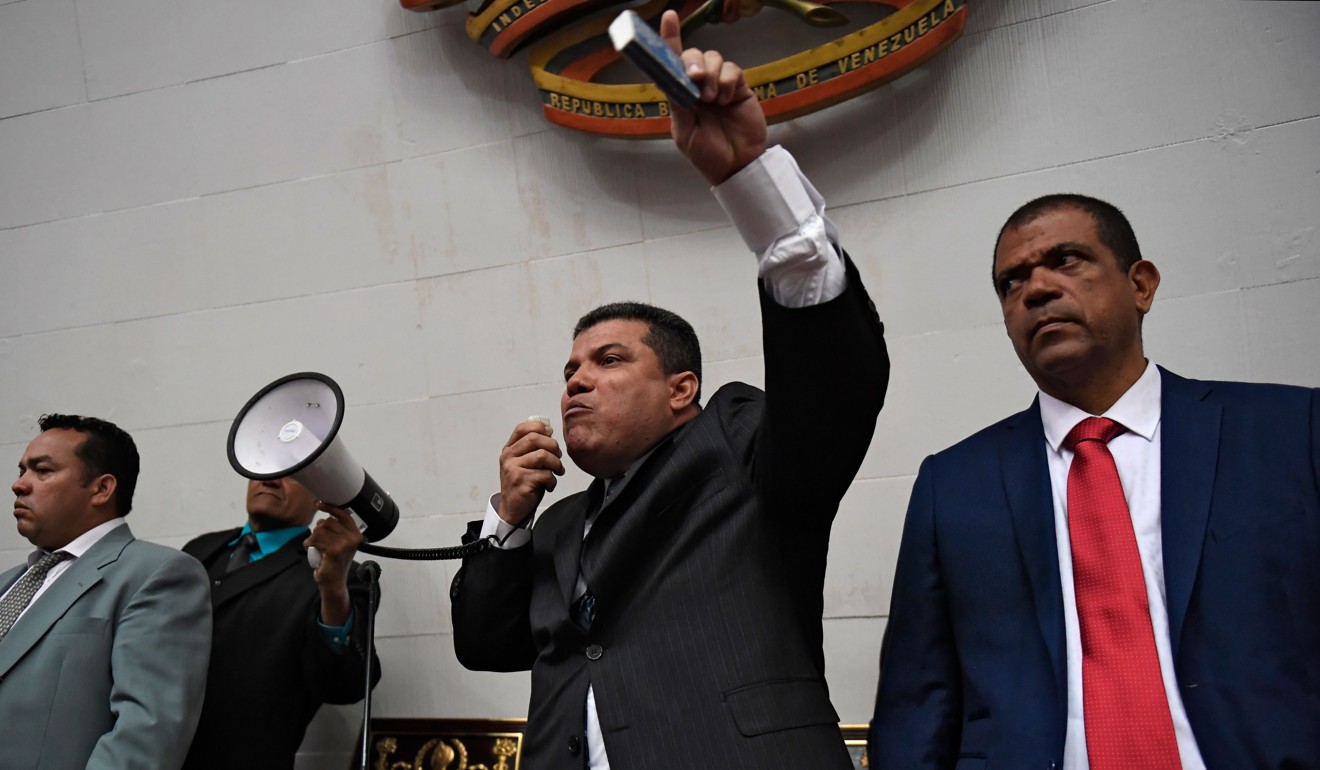
Guaido last year led a groundswell movement to push Maduro from power, denouncing his 2018 re-election as a fraud and assuming a parallel presidency that quickly won the recognition of most Western and Latin American nations.
Massive blackout cripples most of Venezuela, government blames ‘electromagnetic attack’
But Maduro has clung to power, thanks to continued support from the military and the backing of China, Cuba and Russia. He has denounced Guaido as a US puppet.
Colombia’s foreign office described Parra’s election as “fraudulent, without transparency or guarantees” and said it wouldn’t recognise it.
US senator for Florida Marco Rubio called it a “sham”, while US State Department official Michael Kozak described it as “a farce”.
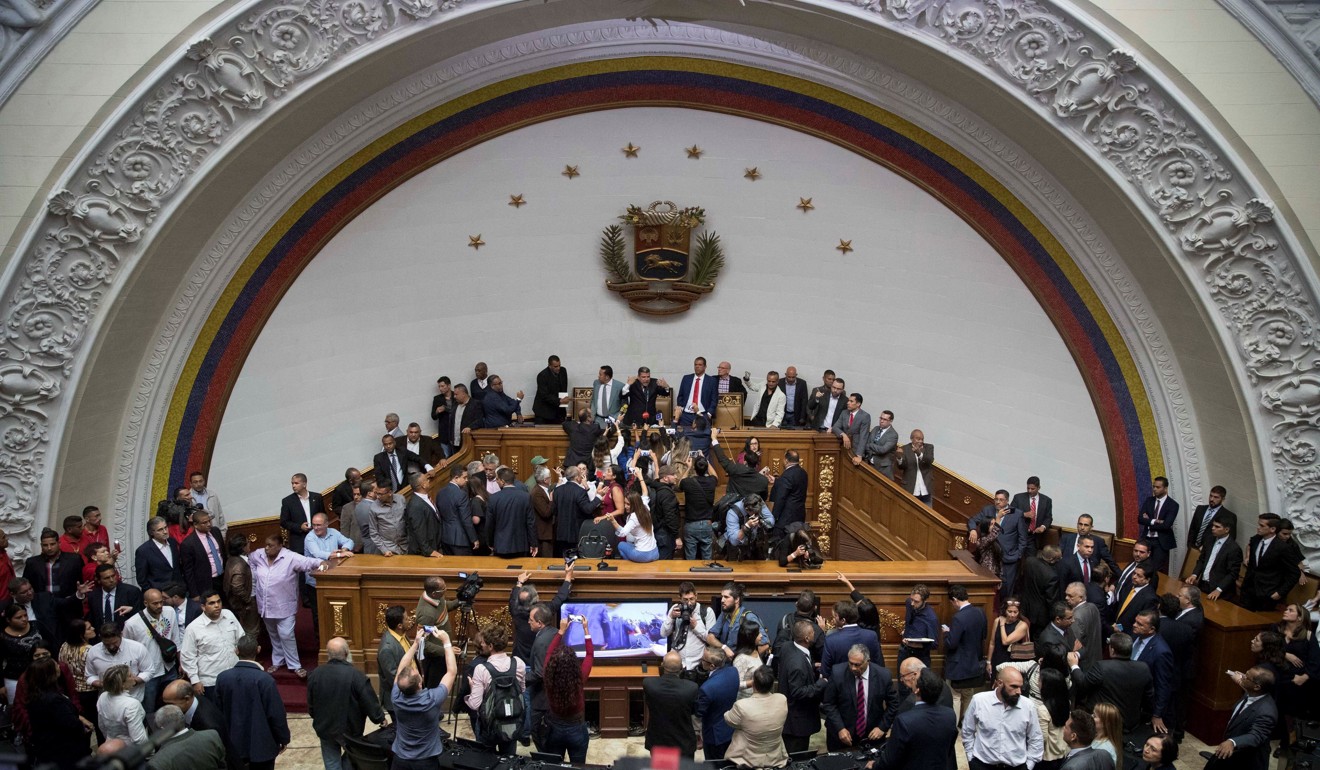
The National Assembly has been effectively sidelined since 2017, when the Supreme Court, made up of Maduro loyalists, declared it in contempt. The court has since annulled its every decision.
Maduro has said he expects to “regain the National Assembly” in elections later this year.
”It is clear now that there is no institution nor possibility to restore or continue a minimum democracy in Venezuela,” said Dimitris Pantoulas, a political analyst in Caracas.
“The most probable scenario is that we’re going to have a parallel National Assembly.”
Indonesia unveils new drone, with an eye on China’s incursions in South China Sea
Guaido’s challenge to Maduro started brightly in 2019 as he showed ingenuity and skill in rallying supporters to protest and defying Maduro’s authority in a number of ways - including flouting a travel ban.
But his momentum petered out over the second half of 2019.
Despite intense pressure from the United States, which has imposed sanctions on regime figures, Maduro has retained power thanks largely to support from the armed forces.
Even a severe economic crisis that has led to shortages of food and medicines, and an inflation rate the IMF said would hit a stunning 200,000 per cent for 2019, hasn’t dislodged Maduro.
Additional reporting by Reuters and Bloomberg

.png?itok=arIb17P0)